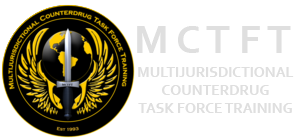During this hour-long CADCA-TV broadcast called The War Within: Helping Returning Veterans, hear from a young Marine about what it was like to adjust to life at home after serving in Iraq. See how science can help us better understand what’s going on inside the brain. Find out what we can do to help the men and women who serve our country.
Learning Objectives:
- Hear what it’s like to return home from a combat zone
- See how science can help us understand the brain
- Find out how some people try to deal with their stressors using alcohol and other drugs
- See how PTSD and other stress disorders impact military members and veterans
Originally Aired: July 23, 2009
Panelists
Timothy P. Condon
Ph.D., Deputy Director, National Institute on Drug Abuse
Dr. Condon was appointed as Deputy Director of the National Institute on Drug Abuse (NIDA) in 2003. Serving alongside the NIDA Director, Dr. Condon provides leadership in developing, implementing, and managing NIDA’s research programs and strategic priorities.
He has initiated enduring partnerships with multiple stakeholder groups, including other federal agencies, the criminal justice system, and the treatment and prevention practitioner communities, with whom he has been particularly effective in advancing the real-world use of evidence-based interventions.
Through his active outreach in advancing the science of addiction, Dr. Condon is helping to create needed change in how drug abuse addiction is perceived and treated in this country and internationally, erasing damaging stigma and ushering in a new health paradigm that accurately views addiction as a treatable disease.
Since coming to NIDA in 1992, Dr. Condon has held a number of prominent science policy positions, including an appointment in 1996 to be NIDA’s first Associate Director for Science Policy, as well as Director of the Office of Science Policy and Communications. Before coming to NIDA, Dr. Condon served in several senior positions, managing research and service programs at the former Alcohol, Drug Abuse, and Mental Health Administration and directing emerging neuroscience technology assessment for the U.S. Congress, Office of Technology Assessment.
Dr. Condon received his B.S. in biology and psychology from Boston College and completed his M.S. and Ph.D. in neuroscience at the Department of Physiology, College of Medicine, Ohio State University. His postdoctoral training was in neuroendocrinology and neurophysiology at the Brain Research Institute, UCLA, and the Oregon Health Sciences University.
Arthur T. Dean
Chairman and CEO of Community Anti-Drug Coalitions of America (CADCA), Retired Army General
General Dean became the leader of CADCA on August 31, 1998. His responsibilities as Chairman and CEO include providing strategic direction, diversifying and increasing funding, leading the board, being the primary spokesman for the organization and overseeing the operations and personnel of CADCA.
Before joining CADCA, he spent 31 years in the U.S. Army. He retired on August 31, 1998, at the grade of Major General. During his time in the Army, General Dean served around the world. He saw combat in the Republic of Vietnam and Saudi Arabia. He served six years with the 82d Airborne Division and the 18th Airborne Corps at Fort Bragg, NC. He also served four years in Germany. General Dean commanded Army units from Company to Brigade for 10 years and served 10 years at Headquarters, Department of the Army, in Washington, DC. He is a U.S. Army and Republic of Vietnam Senior Parachutist and an Army Ranger. He possesses numerous awards with the highest being two awards of the U.S. Army Distinguished Service Medal.
General Dean received his undergraduate degree in history from Morgan State University in 1967 and his master’s degree in management and supervision from Central Michigan University in 1977. He is also a graduate of the Stanford University’s Advanced Management Program and the U.S. Army’s War College.
Dr. Karen Drexler
Emory University School of Medicine, Atlanta VA Medical Center
Karen Drexler, M.D. is Associate Professor of Psychiatry at Emory University School of Medicine. She is Board Certified in Psychiatry and in Addiction Psychiatry by the American Board of Psychiatry and Neurology. She directs the Substance Abuse Treatment Programs at the Atlanta VA Medical Center and the Addiction Psychiatry Residency Training Program at Emory University School of Medicine. She has received grant funding from the National Institute on Drug Abuse, Office of National Drug Control Policy, and the American Psychiatric Association to investigate the neural correlates of emotion regulation and reactivity to drug cues in cocaine and nicotine dependence. She has served as a co-investigator or site principal investigator on several projects exploring the neural correlates of cocaine and nicotine craving, effects of cocaine on startle response, effectiveness of naltrexone for alcoholism, and cognitive control of behavior in cocaine dependence. She is the recipient of several awards for excellence in teaching medical students and psychiatry residents.
Dr. Drexler serves as Co-chair of the Addiction Psychiatry Examination Committee for the American Board of Psychiatry and Neurology, Chair of the PGY-5 Training Committee for the American Academy of Addiction Psychiatry, and as a member of the Board of Directors for the Community Anti-Drug Coalitions of America.
James, R. McDonough
Army Veteran, Former Director of the Florida Office of Drug Control
After years of government service, Jim McDonough remains active in supporting public causes after serving 13 years in both the White House and at the upper levels of Florida government and 27 years in a full military career. He is active in drug control and criminal justice matters and continues to speak and write on matters of national security, military strategy and doctrine, and public policy. He works as a strategic consultant and as an Associate of the Vera Institute of Criminal Justice.
McDonough was the Secretary of the Florida Department of Corrections from February 2006 until February 2008 and from 1999 to 2006, he was the Director of the Florida Office of Drug Control. From 1996-1999, McDonough was Director of Strategy for the Office of National Drug Control Policy.
In 2008 he became the senior fellow of the JEHT Foundation (JEHT stands for justice, equality, human dignity, and tolerance) and served until June 2008. McDonough is the Chairman of the Florida Parole Qualifications Committee, serves as a Guardian Ad Litem, and represents the 2nd Judicial Circuit for the Florida Association of Drug Court Professionals. He is also on the Board of the Florida Chapter of the National Association of Mental Illness.
McDonough is a graduate of the Massachusetts Institute of Technology and the United States Military Academy. He served a full career as a United States Army officer. McDonough holds a number of awards from both his civilian and military experiences. Among them are the Distinguished Service Medal, Bronze Star for valor, two additional awards of the Bronze Star, the Purple Heart, the Combat Infantryman’s Badge, and the Army’s Ranger Tab.

